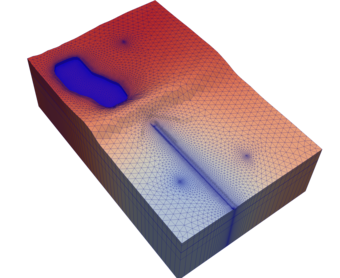|
| logical(lgp) function, public | isadaptiveperiod (kper) |
| | @ brief Determine if period is adaptive More...
|
| |
| subroutine, public | ats_cr (inunit, nper_tdis) |
| | @ brief Create ATS object More...
|
| |
| subroutine | ats_allocate_scalars () |
| | @ brief Allocate scalars More...
|
| |
| subroutine | ats_allocate_arrays () |
| | @ brief Allocate arrays More...
|
| |
| subroutine, public | ats_da () |
| | @ brief Deallocate variables More...
|
| |
| subroutine | ats_read_options () |
| | @ brief Read options More...
|
| |
| subroutine | ats_read_dimensions () |
| | @ brief Read dimensions More...
|
| |
| subroutine | ats_read_timing () |
| | @ brief Read timing More...
|
| |
| subroutine | ats_process_input () |
| | @ brief Process input More...
|
| |
| subroutine | ats_input_table () |
| | @ brief Write input table More...
|
| |
| subroutine | ats_check_timing () |
| | @ brief Check timing More...
|
| |
| subroutine, public | ats_period_message (kper) |
| | @ brief Write period message More...
|
| |
| subroutine, public | ats_submit_delt (kstp, kper, dt, sloc, idir) |
| | @ brief Allow and external caller to submit preferred time step More...
|
| |
| subroutine, public | ats_set_delt (kstp, kper, pertim, perlencurrent, delt) |
| | @ brief Set time step More...
|
| |
| subroutine, public | ats_reset_delt (kstp, kper, lastStepFailed, delt, finishedTrying) |
| | @ brief Reset time step because failure has occurred More...
|
| |
| subroutine, public | ats_set_endofperiod (kper, pertim, perlencurrent, endofperiod) |
| | @ brief Set end of period indicator More...
|
| |
|
| integer(i4b), pointer | nper => null() |
| | set equal to nper More...
|
| |
| integer(i4b), pointer | maxats => null() |
| | number of ats entries More...
|
| |
| real(dp), pointer, public | dtstable => null() |
| | delt value required for stability More...
|
| |
| integer(i4b), dimension(:), pointer, contiguous | kperats => null() |
| | array of stress period numbers to apply ats (size NPER) More...
|
| |
| integer(i4b), dimension(:), pointer, contiguous | iperats => null() |
| | array of stress period numbers to apply ats (size MAXATS) More...
|
| |
| real(dp), dimension(:), pointer, contiguous | dt0 => null() |
| | input array of initial time step sizes More...
|
| |
| real(dp), dimension(:), pointer, contiguous | dtmin => null() |
| | input array of minimum time step sizes More...
|
| |
| real(dp), dimension(:), pointer, contiguous | dtmax => null() |
| | input array of maximum time step sizes More...
|
| |
| real(dp), dimension(:), pointer, contiguous | dtadj => null() |
| | input array of time step factors for shortening or increasing More...
|
| |
| real(dp), dimension(:), pointer, contiguous | dtfailadj => null() |
| | input array of time step factors for shortening due to nonconvergence More...
|
| |
| type(blockparsertype) | parser |
| | block parser for reading input file More...
|
| |




